In classic cartoons, one character occasionally runs off the edge of the cliff and, for a few moments, hangs suspended in mid-air. Confused, he looks at the camera and then looks down. As soon as he looks down and realizes there is no Earth supporting him, he plummets to the bottom of the canyon. Wile E. Coyote faces that fate repeatedly.
Nikki Haley faces it now. So far, she’s refusing to look down. When she finally does, she will see that there is no ground beneath her in the Republican primary. There’s just a very long way to fall to the canyon below.
True, Haley got a respectable vote percentage in New Hampshire and still has support from donors. But she can’t stay suspended forever. Assuming she stays in the race until Super Tuesday in early March, when fifteen states vote, her next major test comes in South Carolina, her home state, on February 24. Before then, she is skipping the Nevada caucuses, where Trump is the overwhelming favorite. South Carolina is hardly more promising. The former governor is more than thirty points behind the former president in her home state.
Those are daunting numbers. They are even more daunting because Haley cannot jack them up with advertisements to raise name recognition. Voters already know both candidates. Worse for her, they seem to have made up their minds.
So have the state’s Republican politicians. They have lined up to support Trump. Endorsements for the former president have poured in from both US senators, the sitting governor and all but one of the state’s congressional representatives. Support from Senator Tim Scott is especially noteworthy since, to do it, he had to abandon the former governor who elevated him to the US Senate.
Loyalty is such a fleeting thing in politics. Most politicians would do what Scott has done and seize their main chance. Scott’s is a chance to become Trump’s running mate. He doesn’t want to jeopardize it by snubbing a presidential candidate who values fealty (but seldom reciprocates).
The real puzzle is why Haley is staying in a primary race she is so unlikely to win. There are several possibilities but no clear answer.
She might be:
- fooling herself, thinking her chances are far greater than they actually are;
- hoping Trump could be toppled by his legal troubles or perhaps some unexpected health issues; or
- positioning herself for the future, either as a third-party candidate this year or as a Republican candidate in 2028, in case Trump loses and the party blow up
It’s impossible to read Haley’s mind, but none of those calculations seems like strong reasons to continue the race.
She is smart enough to read the polls and realize that she has no chance to convince Republican primary voters, though she naturally doesn’t convey those doubts publicly. After she lost New Hampshire by double digits, her concession sounded more like a victory speech. That upbeat presentation may have spurred enthusiasm among her supporters, but it surely doesn’t fool the candidate herself. Neither will it fool primary voters in other states.
Haley must know that New Hampshire was her best shot at defeating Trump. Yet she finished eleven points behind him. She says she finished second. Trump says she finished last. Although Haley received a decent percentage of the vote, she fell far short of what she needed in a state with her most favorable political terrain. New Hampshire permits crossover voting from Independents and even Democrats and, unlike Iowa and South Carolina, has a moderate Republican voter base, especially in the most populated counties near the Massachusetts border. Those features played to Haley’s strong points. But she was thumped.
Haley failed to persuade primary voters with her two main arguments. The first is that Trump can’t beat Biden. The second is that, even if he did, he would only bring four more years of chaos, not the implementation of effective, conservative policies.
Republican voters aren’t buying what Nikki’s selling. Maybe they should, but they aren’t. Base voters think the “chaos” Haley underscores has been caused solely by Democrats and the “deep state,” who are trying to stop Trump. Republican voters don’t want them to have a veto over their choice for president. What they want is a candidate who will fight to “take back our country” and “make it great again.” Second, they can see how weak Biden, in the polls and both physically and mentally. Beyond Biden’s policy failures, especially the open border and inflation, they think he has governed mainly as a progressive. He hasn’t delivered on what they considered his biggest promise: to bring the nation together. The president’s failures and his low poll numbers encourage Republican primary voters to think Trump could win in November. That’s bad news for Haley.
If the base actually prefers Trump, as the first election and caucus show, if they think he is still vigorous despite his age, and if they think he could win the general election, they will stick with him. That’s what Iowa, New Hampshire and the polling in South Carolina and Nevada show. Those results show Trump has persuaded Republican base voters on all counts. He also seems to have convinced them that Haley is a RINO (a Republican In Name Only) with a “globalist agenda” and corporate support. Those are the very antithesis of the modern, populist party, the one Trump has created.
Haley still seems to have support from rich donors to stay in the race. That’s vital. When funds dry up, as they did for Florida governor Ron DeSantis, the candidate can’t buy ads or pay campaign staff. Haley doesn’t face that problem yet, but it’s hard to believe her donors still think she could defeat Trump, though she could force him to spend more time and money on the campaign trail. That would hurt Trump but it wouldn’t help Haley.
Trump has a docket full of legal troubles but, so far, they haven’t helped his primary opponents. The cases could very well hurt Trump in the general election, especially if he is convicted on criminal counts — but not in the primaries. In fact, Trump’s numbers surged after Manhattan district attorney Alvin Bragg indicated Trump for inflating his real estate assets to get bank loans. The loans were repaid; no one lost money; and the loan documents expressly tell the lender not to rely on the borrower’s figures. Moreover, Bragg and New York attorney general Letitia James were elected on platforms to “get Trump.” That’s exactly what Republican voters think they are doing.
Perhaps, then, Haley is preparing to run as a third party candidate or, in 2028, as a Republican. Those two goals are incompatible. If she runs this year as, say, a “No Labels” candidate, she will never be accepted back into Republican ranks. Base voters will think she is running only to drain away Trump votes and cost him the White House.
If she drops out and hopes to run in 2028, she is counting on a Trump loss in November and a meltdown of the personal coalition he built to reshape and dominate the party. Those are genuine possibilities, but she faces a couple of major problems. The first is that the longer she stays in the race this year, the more she faces Trump’s harsh criticism. The more he shreds her, the harder it will be to capture those base voters in the future. Second, it’s hard to win the White House after a political party has blown up. It is more likely to remain fragmented, at least for a while, than to coalesce behind a candidate from one wing of the party. Trump has effectively painted Haley as the reincarnation of the Bush wing of the party, indeed, the George H.W. Bush wing. It’s hard to know if the party will move back in that direction in 2028, even if Trump loses.
Given these problems, it’s impossible to fathom how Nikki Haley sees any ground under her feet in the Republican primaries. She’s already dashed off the edge of the cliff and hangs suspended in mid-air. When she finally looks down, she’ll see a long fall.



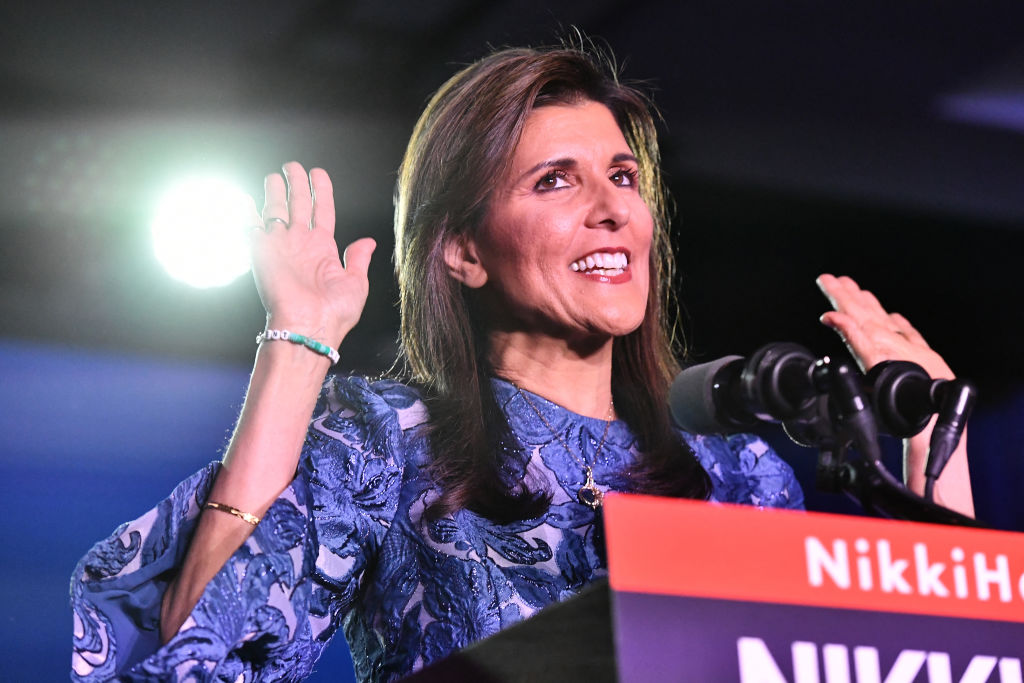






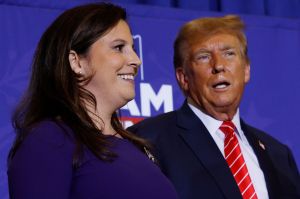





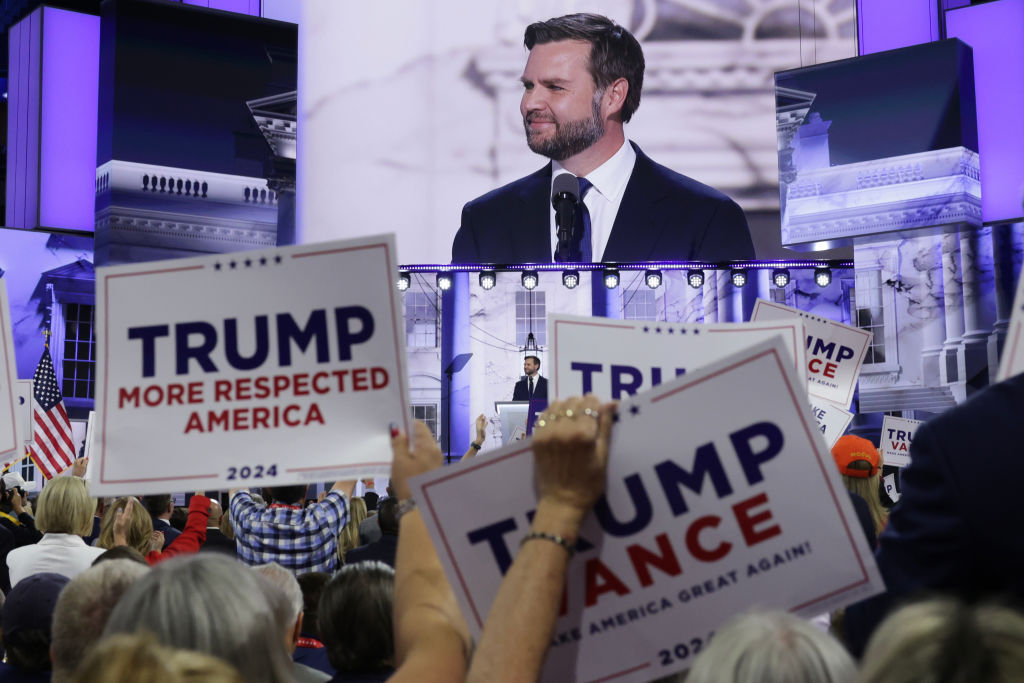
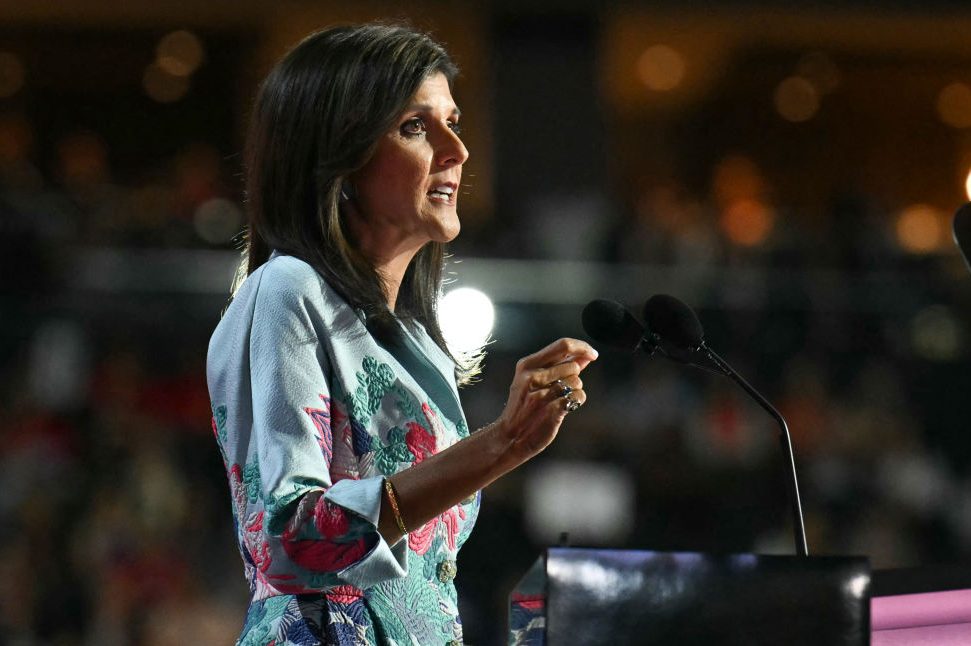
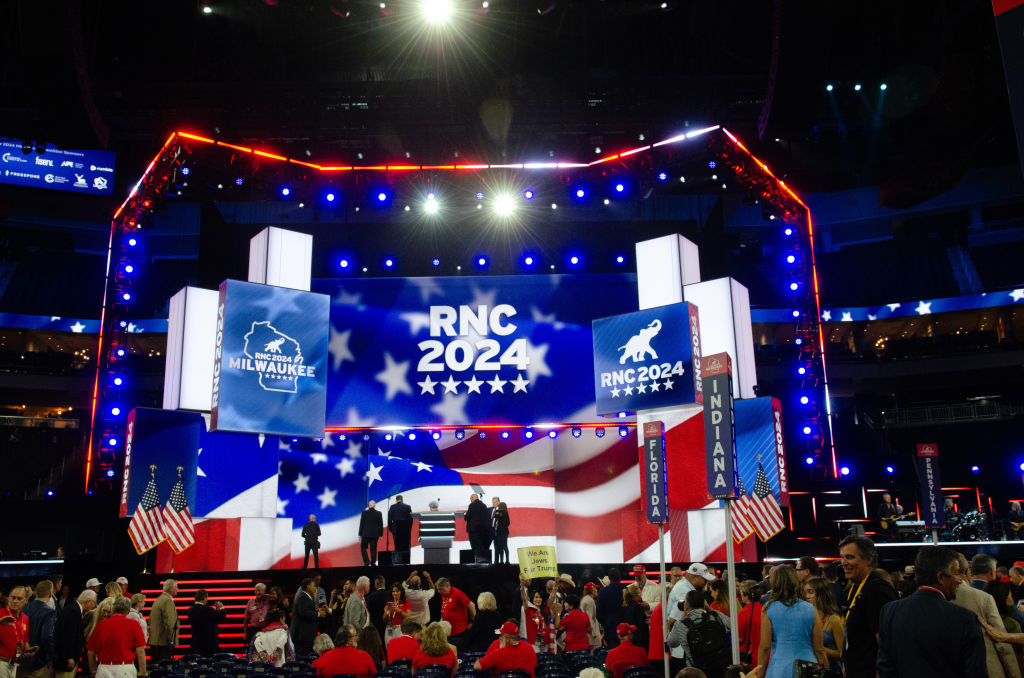







Leave a Reply